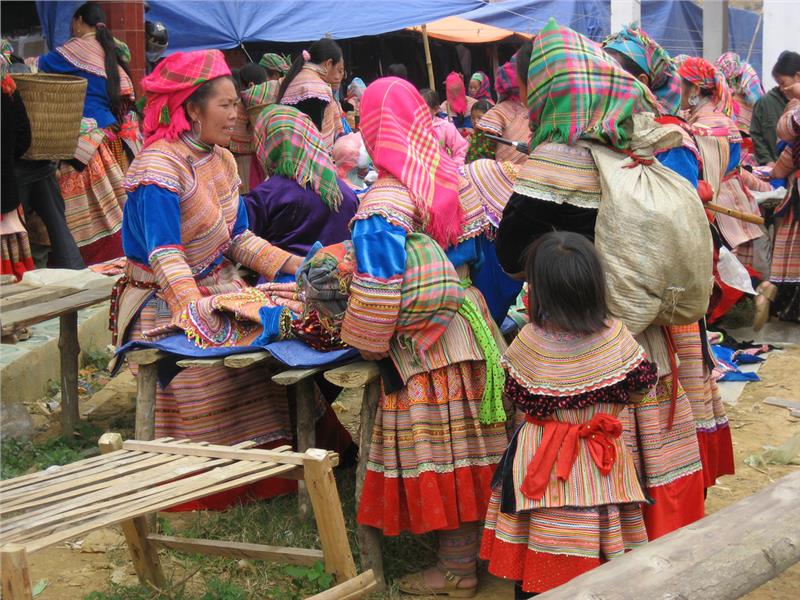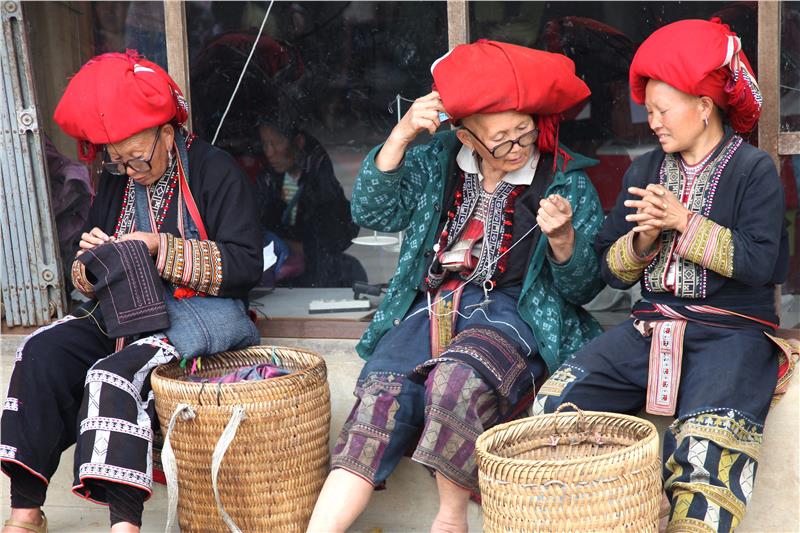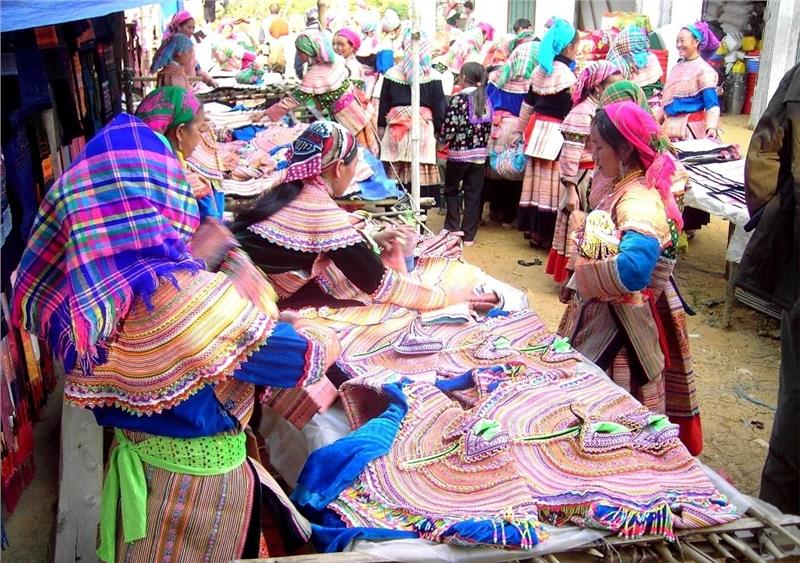Sapa, one of the most visited destinations in almost Vietnam tour packages, is a name evoking unforgettable memories in tourists' mind. It is not just the land of majestic mountains and immense white flowers forests, but also the residence of many ethnic minority groups with unique cultural colors of brocade. That is so fantastic when popping in Dao people's markets in Sapa the most attractive thing is ladies' vivid costumes. The colors of Sapa brocade not just create the hidden charm of ladies, but also become a traditional culture of ethnic people in Sapa. For local people, brocade has an important meaning in their daily as well as spiritual life. Brocade is used as decorative items, and keepsakes of love...

In Vietnam tours to Sapa, tourists will easily meet Dao ladies in brightly red bandanas or hats, and rainbow-like dresses. When entering local villages of Dao people, tourists will be lured into small of beautiful stilt houses with flamboyant brocade items decorated in these houses. These houses are places where many unique cultural features remain, from distinctive festivals to traditional brocade embroidery. Dao women can embroider anywhere and unleash their creativity to weave artistic brocade products. In terms of embroidery skills shown in colorful brocade, it proves the talent, ingenuity, diligence and industriousness of Sapa women in particular and mountainous women in general. From little girls to ladies all are taught to make eye-catching brocade. When these ladies are in married age, they embroider necessary costumes for their wedding in accordance with traditional customs. Embroidering to create beautiful costumes indicates not just the adroitness of local women, but also the long-established cultural features inherited over generations. Each patterns on brocade tinged with their love for working, for hometown, and for villages.

Brocade in Sapa is traditionally made of cotton and flax yarn materials found in the forest. Its patterns are also dyed with natural colors. The patterns on the brocade fabrics often follow traditions of each ethnic group. Brocade weaving tradition is preserved and inherited through skillful hands of women in families. In present-day life, Red Dao people in Sapa remain their own traditional cultural identity. Previously, brocade was created to meet the needs in daily life, to use as dowry and in festivals. Todays, when Sapa tourism and economy are more developed, Sapa brocade products are favored by most tourists. Sapa brocade products gradually bring to local people a new and better life. These special products are often sold in Sapa markets, or along the roads to Cat Cat Village or Ta Phin Village. These brocade products vary from vivid dresses, bandanas, handbags, wallets, or some interesting decorative items. Obviously, the development of brocade as tourism products contributes to the preservation of traditional cultural values. Along with other values, brocade is improved by local ethnic groups to become a culture featuring unique identity, enriching Vietnam culture.

Apart from owning a humble and quiet beauty, hiding in itself the magic of a foggy town, Sapa possesses an irresistible charm - colorful unique culture of Vietnam ethnic groups, which is manifested through exclusive and subtle brocade products. Brocade is an indispensable souvenir when enjoying Vietnam holidays in Sapa. The contours of motifs shown on brocade are the essence of culture imbued with national identity, which makes Sapa brocade unique among other brocade products in the region. Embroidering brocade items used in daily life is an indispensable work. If a woman does not know how to weave or embroider, it means the family will not have clothes to wear. It is a very valuable skill and has a deep root over the development process to become a traditional handicraft.
Coming to Sapa and seeing local ladies sitting on rocks along route and embroidering bring to tourists an interesting feeling about local people and daily life’s culture. By dint of the dedication featuring cultural identity of brocade products in Sapa, more and more tourists come to visit and explore the land and people here.
